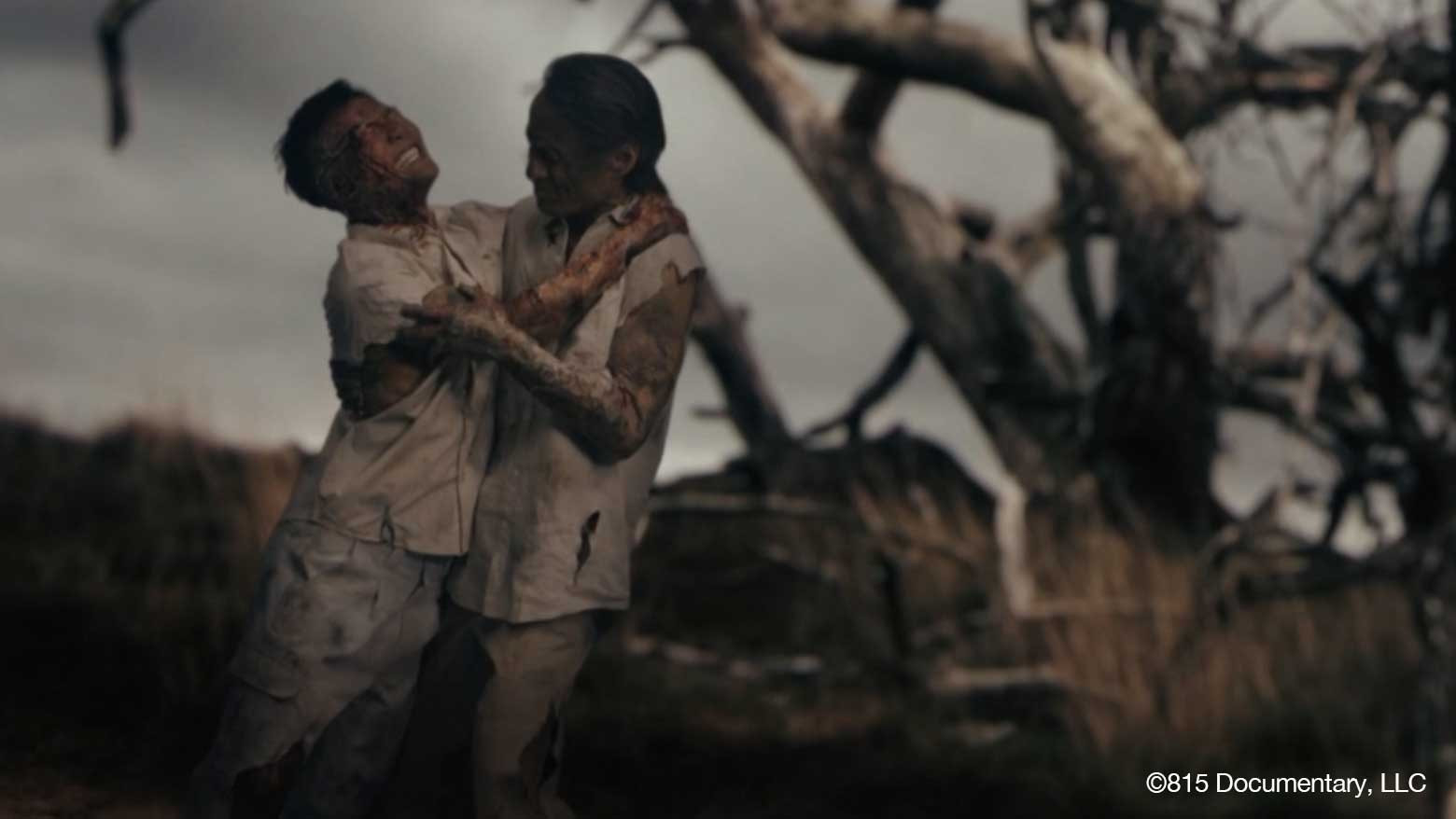The movie is based on a book written by Shinji's daughter Akiko, who also serves as its executive producer. She says she not only wanted to show people the reality of the damage done by the explosion and subsequent radiation, but also humanity’s ability to persevere in the face of an unthinkable disaster.
"We can think of this resiliency," Akiko said, "looking forward to the future."
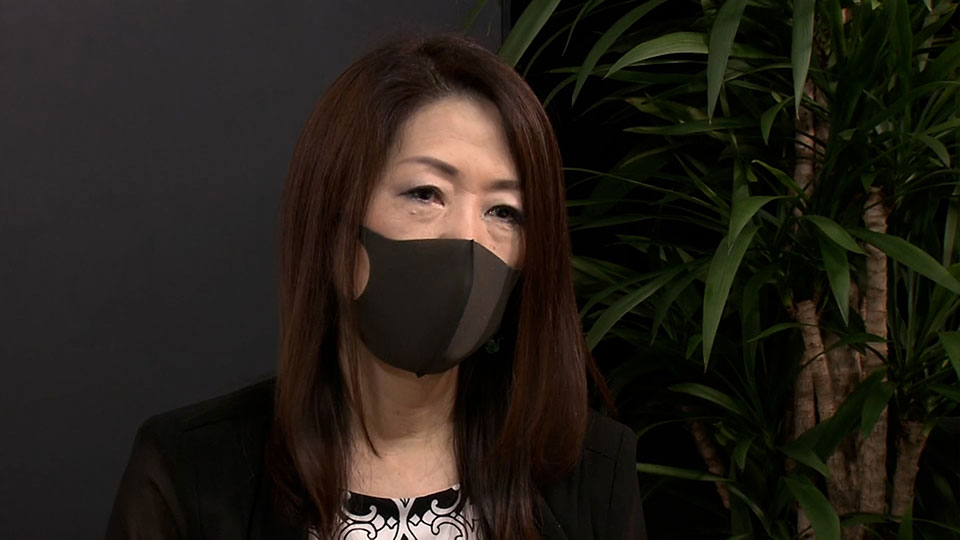
Sharing a familiar story with a new audience
Japanese children, especially in Hiroshima and Nagasaki, grow up hearing the stories of atomic bomb survivors. That was the case for Akiko, whose father was only 19 years old and 1.2 kilometers from the bomb’s hypocenter when it was dropped.
After graduating from university in Hiroshima, Akiko left Japan and headed to the United States to work as a medical psychologist. She recalls how happy her father was when she made the decision to start her new life there.
"My father really wanted his children to study English. He always wanted us to have a global mind and have a broad perspective," Akiko said.
She decided to make a major life change 11 years ago, while attending business school in France. She gave a presentation to her class about how her father survived the bomb and started his own business.
"People were in tears after the presentation," she said. "They told me that I should write a book and share my father's story out to the world."
For most of her life, she’d felt that her father's story needed to be told. When she shared her idea for a book with Shinji, he insisted that she write it in English.
"I told him that he cannot read it if I write in English. He said, 'It's my story so I don't need to read it.' If I write in English, more people from all over the world can learn how it was under the mushroom clouds and also his philosophy. My father was looking toward the world and he wanted to send a message."
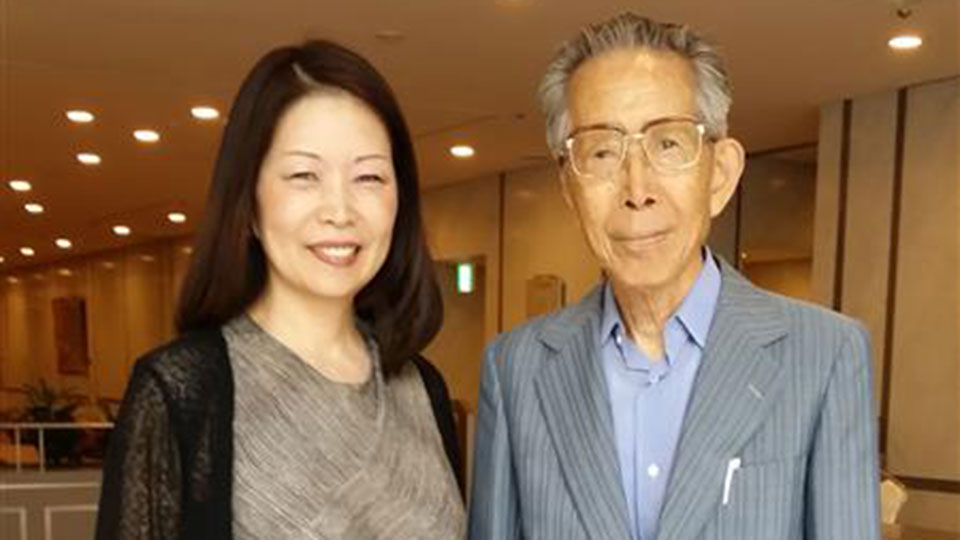
It took decades before Shinji was open to sharing his experience in minute detail. But by the time he was in his late 70s, he felt the need to share his story publicly.
"Before that, when my father talked about what happened 76 years ago, he would be talking about how his father was heroic and dependable, focusing about the family perspective. But gradually, he started telling me more details about the painful part," Akiko said.
A tale of sorrow and forgiveness
The book was published in English in 2013 and in Japanese the following year. After its publication, she immediately looked for a way to get her father’s story on film.
She got her wish last January, when shooting began in both Hiroshima and New York.
Much of the movie’s power comes from the way it shows viewers how the bomb blew Shinji from the roof of his family home 76 years ago.
For days he and his father pushed on despite their injuries to search for help, as Hiroshima descended into chaos and fires grew all around them.
The film also depicts several months later, after his father’s death, when Shinji returns to find the remains of their family home.
Under the debris, he somehow manages to find his father's pocket watch. The intensity of the bomb had burned 8:15, the exact moment when it hit, into its face.
It was his only family memento, but Shinji also recognized the symbolic power of the cherished object.
He eventually donated it to the peace museum in Hiroshima, which sent it to be showcased by the United Nations in New York.
After Akiko moved to the United States, she couldn’t help but pay it a visit. But when she arrived, she was greeted by an empty case. The irreplaceable item had been stolen.
Furious, she reported back to Shinji, who had an unexpected reaction.
"My father felt very happy that the incident led to more attention by other people," Akiko said.
The story of the missing watch was covered by news outlets around the world, and Akiko realized that her father felt it was a blessing that the watch could help spread his message of peace.
The film’s title pays homage to the watch. Its content takes inspiration from his uncanny ability to forgive.
The power of realism
Akiko also felt it was important to make everything feel authentic.
She trained the predominantly English-speaking actors to speak Japanese with a Hiroshima dialect.
When it came to depicting the victims’ burns, production was faced with a choice. They could either have actors spend hours having more realistic make-up applied to small areas, or go for cheaper, full-body coverage. She opted for the former.
"Rather than just having the whole body, that kind of looks like it, I wanted to have parts look real," she explained.
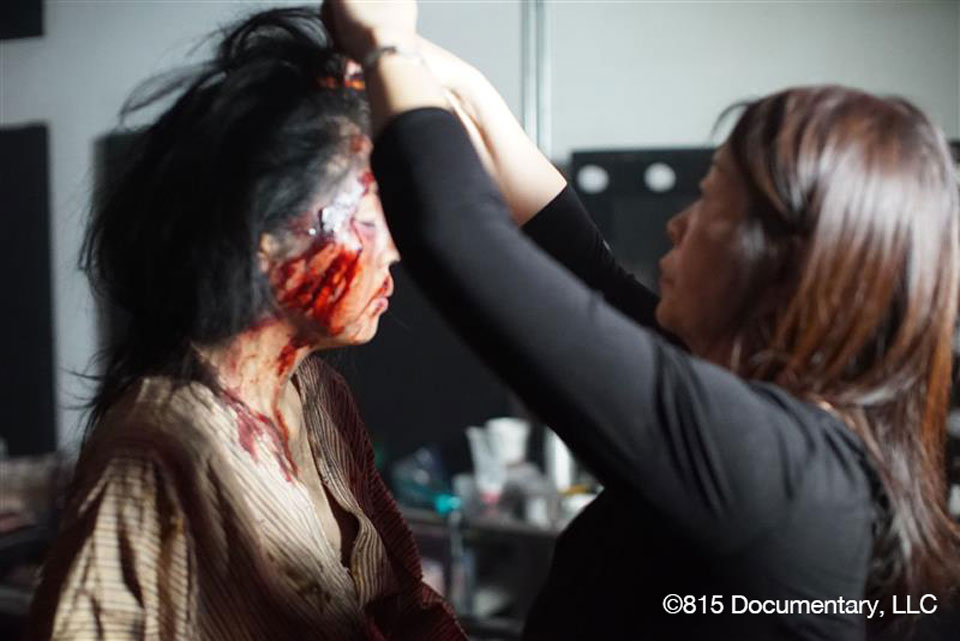
With a goal of teaching younger people in her adopted home about the horrors of the bomb, the film was made with a cast and crew who were mostly American and in their 30s.
It soon became clear this was their first encounter with the bombing’s human impact.
"They were shocked to see my father standing there, who went through that whole experience," she said.
"I thought this project brought an opportunity for them to think about it and talk about it with their friends. And so that kind of spread in a small way."
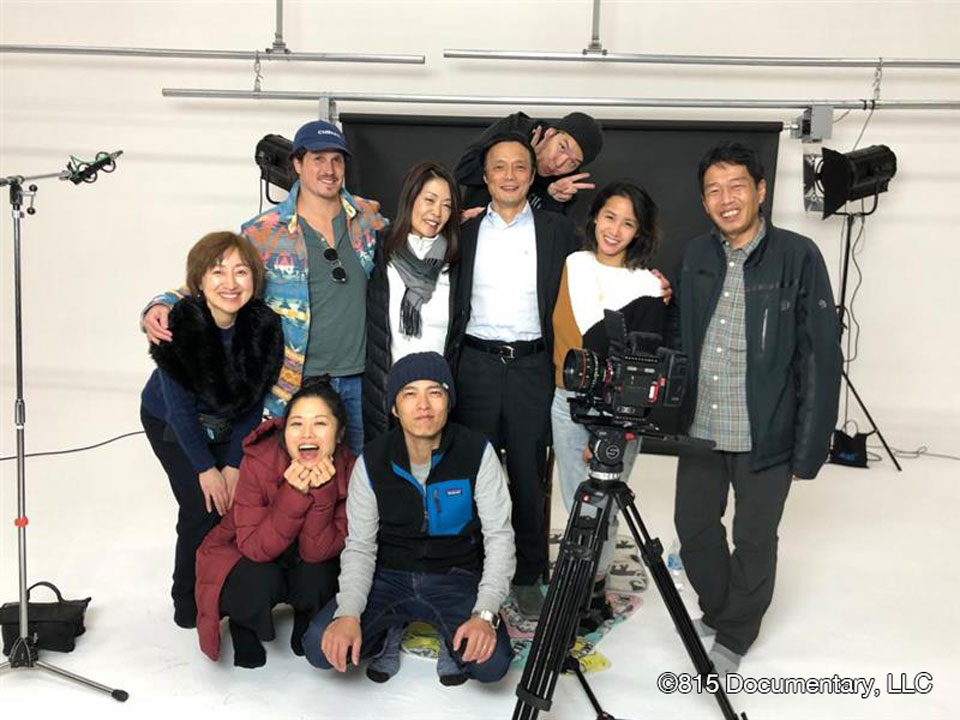
The film was selected by several film festivals and was screened at events in Japan, the US, and South Africa.
Akiko also plans to give the story a broader American release.
Unfortunately, Shinji will not be able to see it, passing away last year at the age of 94.
Akiko says her father's message of forgiveness and understanding lives on, and remains as relevant as ever.
"The pandemic creates a lot of anxiety, fear, and self-protectiveness," she said. "My father told me that it's easy to point the finger at somebody who is supposed to have caused the pain and the loss, but that doesn't really do anything."
